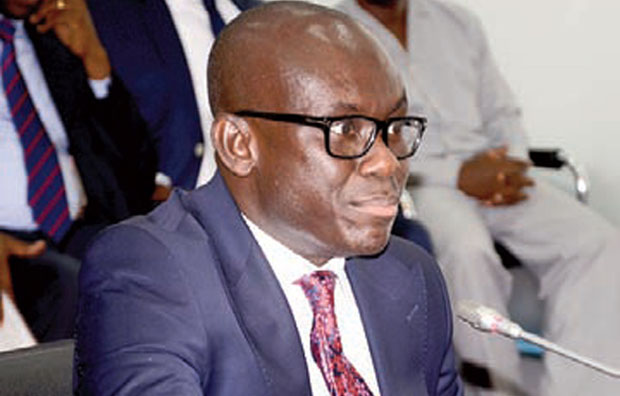Godfred Yeboah Dame
The suit against government’s plan to construct a National Cathedral for the country has been faulted by the Attorney General and Minister of Justice, Gloria Akuffo, in legal arguments submitted by Godfred Yeboah Dame, a Deputy Attorney-General.
The Attorney General (AG) is of the strong view that the lawsuit challenging the construction of the controversial cathedral lacks understanding of the nature of Ghanaian secularism.
The AG, therefore, urged the court to dismiss the case filed by the acting General Secretary of the Convention People’s Party (CPP), James Kwabena Bomfeh.
The CPP official, in his suit, argued that Ghana is a secular state, and that it was therefore wrong for government, to as he put it “excessively entangled in any religion or religious practice.”
Due to that, he is consequently praying the Supreme Court to declare the building of the National Cathedral and state involvement in the Muslim pilgrimage to Mecca unconstitutional.
But Ms. Akuffo, in arguments submitted by the deputy, indicated that Ghana cannot be said to be a country that does not recognize the existence of a Supreme Being of God.
This, according to her, was because the country has for many years observed the principal religious celebrations as public holidays.
According to the statement, “We respectfully submit that a country that invokes the name of God in its pledge of allegiance and anthem, regularly observes religious holidays as public holidays and grants formal representation on a constitutional body to specifically named religious bodies, cannot be said to subscribe to a vision of secularism that does not permit the government to make reasonable accommodation for religion.”
“It’s submitted that secularism in the context of the Ghana Constitution must be understood to allow, even encourage, state recognition and accommodation of religion and religious identity”, he indicated.
Making reference to the Hajj Pilgrimage, which receives State support annually, the AG explained that the very nature of that support given to both religions – Christianity and Islam – cannot be used as vehicles of indoctrinating the citizenry.
It said that in the absence of any policy to that effect, there is no risk of fostering any state religion through the kind of support or aid that government has provided Christianity and Islam.
On March 28, 2017, Kwabena Bomfeh had invoked the original jurisdiction of Supreme Court to stop the State from aiding in the construction of the cathedral.
He later filed an amended writ of summons on November 9, 2018.
The AG subsequently filed her statement of case in opposition to the plaintiffs’ action and at the hearing of the instant action November 6, 2018, the court ordered the parties herein to file legal arguments on the issues set out in the Memorandum of Issues.
The AG, in her submission to the argument of bias against other religious groups, argued that the plaintiff’s case was grounded, first, in a fundamental misunderstanding of the character of Ghanaian secularism and assumes wrongly that there is a singular model of a secular state to which all states, regardless of their unique histories, cultures and traditions, must conform.
“Secondly, it’s our respectful submission that the Government of Ghana is, and has at all material times, been compliant with the constitutional provisions affecting the secular status of Ghana as a nation. Ghana is a religiously pluralistic society, where people, individually and in association with others, have been free to practise and manifest their religion and religious beliefs without hindrance or favour from the state.
“Further, the specific acts complained of by the plaintiff do not border on a violation by the State of its obligations under the relevant constitutional provisions relied on by plaintiff,” the AG added.
By Melvin Tarlue


